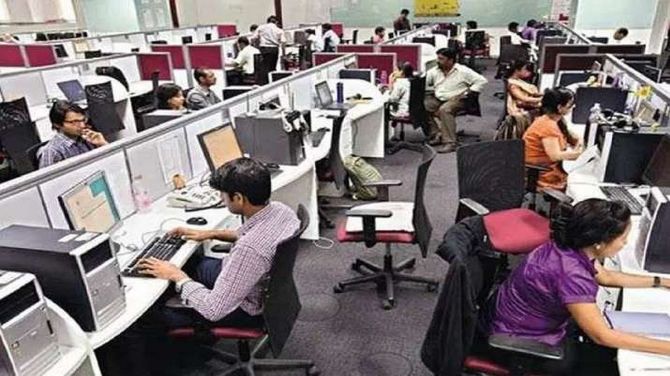The rally in the broader markets, a spate of new listings, and the influx of retail investors have resulted in a boom for research and this has spurred a surge in the number of entities providing such services.

From 467 entities that provided research services as of March 2018, the number jumped 57 per cent to 733 as of March 2021.
And, another 46 entities have been added to the list in the six months since, to take the total number of registered research analysts to 779 as on September 13.
However, the total number of analysts could be a multiple of this number.
This is because the Securities and Exchange Board of India (Sebi) has said regulations primarily apply to the organisation rather than individual analysts that the organisation might employ.
“Individuals employed as research analyst with an entity are not required (to) obtain registration certificate from Sebi.
"The research entity that employs individuals as research analysts is required to obtain (a) registration certificate... The individuals employed as research analyst by research (entities) are required to comply with qualification and certification requirements as specified in the regulations,” said a note on the regulator’s website.
Qualifications include a post-graduate degree in finance or economics.
Hence, the actual number of analysts would be a multiple of the registered entities, since every organisation typically has a team of analysts to track different sectors.
Business Standard identified over 250 research analyst registrations that are companies.
There are additional individuals, who do not appear associated with an organisation, but are registered as research analysts in their own names.
One reason for this boom for research analysts is the broad-based nature of the market rally.
This has created a demand for research on a rising number of counters, according to Pankaj Pandey, head of research at the retail arm of brokerage firm ICICI Securities (ICICIdirect).
“Previously, the rally was large-cap driven,” he said.
The S&P BSE SmallCap index hit an all-time high on Tuesday.
The benchmark S&P BSE Sensex had hit an all-time high of 58553.07 on September 7.
An increase in the number of new companies going public has added to the number of companies that need tracking, according to Pandey.
There were 30 new listings in financial year 2020-21 (FY21), shows data from primary market tracker, the Prime Database Group.
There have been another 20 in the first five months of FY22.
This, too, has added to the demand for more analysts, said Pandey, as has traction in sectors that haven’t historically been well-covered, like the chemicals industry.
The number of companies a single research analyst can track is limited, suggested Satish Menon, executive director at Geojit Financial Services. Unlike many jobs where automation can be a multiplier for output, research analysts often have to go and meet managements or engage in personal interactions (often also with suppliers, distributors and others) to add quality to their reports.
The ceiling on the number of companies a single analyst can track pushes brokerages to hire more people during a boom.
This is because they need to step up on the number of companies that they track for their customers in such times. “It will increase,” said Menon.
Research analysts at retail brokerages are often expected to have domain knowledge, writing skills and knowledge of Microsoft Excel.
Many hire people out of college.
Salaries in a metro city can be Rs 7-8 lakh to begin with.
Many often move on to institutional brokerages after gaining experience, on account of higher pay, according to those in the industry.
Photograph: PTI Photo












 © 2025
© 2025